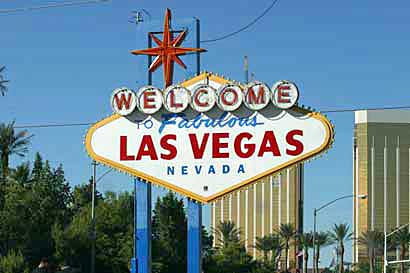Real gondolas dock at Sheldon Adelson’s enormous casino hotel in Las Vegas, The Venetian. The gondoliers sing Italian operettas and row you down the “Grand Canal,” featuring a strip of restaurants and luxury stores. It all happens indoors, in an air-conditioned complex. You don’t know whether it’s day, night, winter or summer. The skies are painted blue. The abundant vegetation is largely plastic. But the money is absolutely real.
When you leave, you’ll see homeless people lying on the sidewalk at the corner – downtrodden people in rags. They can be found on every corner, begging, muttering to themselves. At night, everything here glows with expensive lighting. But it’s not pleasant to roam about the streets, especially not by oneself. Encountering the drunks and the druggies who emerge from the bars and nightclubs is liable to be an uncomfortable experience.
Nevada is the embodiment of the American dream. Everything here is free: the gambling, the prostitution, the alcohol. Above all, you’re free to lose your money. And when that happens, there’s no safety net. You’re out on the streets. It’s a game, those are the rules, and Adelson didn’t invent anything. He’s merely exploiting the wonders of the system.
Clark County, where Las Vegas is located, has seen a sharp rise in its Gini index, which measures inequality. In a single year, the index climbed to 0.6 (on a scale of 0 to 1, with 1 being the most unequal). What other places have similar levels of inequality? Brazil, for one, where the cancer of corruption and social gaps has metastasized.
How does one define a country like the United States, in which a few families have more money than, for instance, the entire education budget? It’s incredible: The 20 richest people in America, 20 flesh-and-blood human beings, have more money than the entire budget for public schools nationwide. It’s no wonder that public education, like public medicine, is deteriorating, and millions of Americans are growing up in ignorance and poor health.
You won’t see them in Hollywood’s sparkling productions; they’re behind the scenes, with rotten teeth, diabetes and high mortality rates. Is a country with such yawning gaps a democracy at all?
The people at the top of the list of those 20 wealthy individuals are the eternal Bill Gates and the new guru Jeff Bezos. Toward the bottom is Adelson (“So Israel won’t be a democratic state, so what?”), and immediately below him George Soros. The former made his money from gambling, the latter from hedge funds, which is roughly the same thing.
Many people, including in Israel, loathe the growing domination by giant corporations and the unprecedented concentration of wealth in the hands of a few people. But some of us suffer from inferiority complexes and internalize our image as babes in the wood. Those who believe in reducing the gaps and increasing quality? “What naïfs; look at North Korea.”
The biggest asset economic swinishness has is the idée fixe that this is the way of the world and of “human nature.” Everyone who comes out against the system is a childish dreamer in the best case, and a dangerous subversive in the worst. Either way, the “experts” say, they’ll sober up some day and understand that these are “the laws of economics”: It’s every man for himself.
This is the greatest form of corruption, and it’s much worse than cash-filled envelopes finding their way to some senior official. This rhetoric is a weapon in the hands of the handful of interested parties called “executives,” who award themselves huge salaries and gamble with public money on delusional deals. When the deal fails, like at Teva, they aren’t the ones that pay the price; the workers and savers are. And then the flock of toadies goes to dance around some other tycoon.
The alternative to corruption isn’t an evil regime like North Korea. Anyone who throws North Korea at you is ignoring the fact that the world leaders in quality of life are countries with well developed, social-democratic forms of government; public health care, education and housing; organized labor and a social safety net.
Viewing human existence as a society rather than as a collection of predators is actually the soberest approach of all, because it takes all people into account instead of just a handful. This is the real test of a democracy.
Published in "Ha'aretz".

